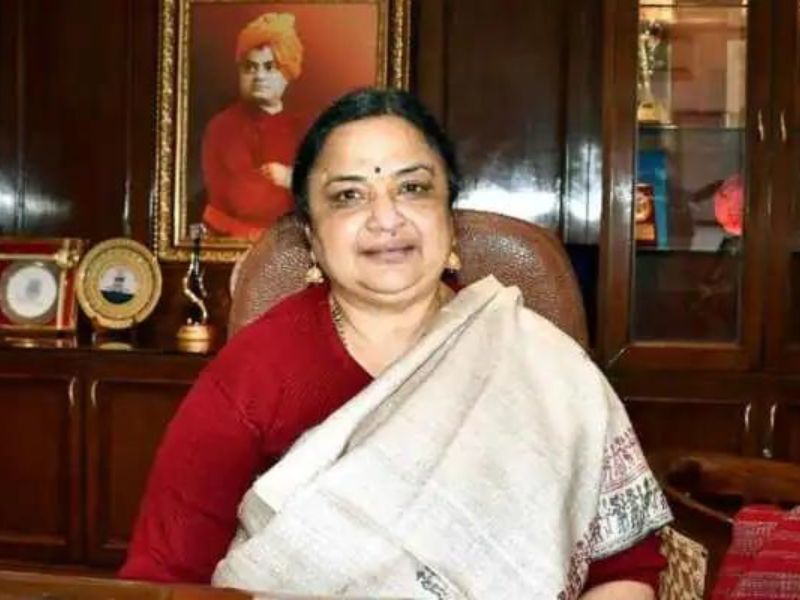JNU vice-chancellor Santishree Dhulipudi Pandit has said the university has been appealing to the Central government to change the Common University Entrance Test (CUET) format for postgraduate admissions.
Speaking to The Indian Express, the vice-chancellor said that admissions to the Master degree programmes could not be based on Multiple Choice Questions (MCQs). There would be no qualitative testing and students’ intake would be hampered.
Talking about the varsity’s decision to follow the CUET results for postgraduate admissions, she said, “The acceptance to join (CUET)… was done by the previous administration… If I was there, I would have put in these concerns in writing. Because it’s very important, I think, that we tell the government because the bureaucracy does not understand.”
“So, it is important that as a teacher, stakeholder within the system, we have to make them understand that these are the difficulties that we have in reality,” she said, adding “We are not opposing the system, per se, but the implementation of the system can be disastrous if we are going to have this kind of uniformity.”
Read:Repairing CUET collateral damage
The entrance examination tests students only through MCQs. There will be 100 questions in each paper on subjects ranging from language comprehension, verbal ability, social sciences, mathematics, science, general awareness, mathematical and quantitative ability, analytical skills, as well as domain subject-related questions.
Before JNU agreed to adopt CUET-PG, it had its own entrance test which was conducted by the National Testing Agency (NTA). The question paper differed for each programme and carried different types of questions — objective type, subjective type, or short answer type questions.
“In Master’s (programme), you cannot have admissions based on MCQs because we don’t even know whether the student can write anything… There should be qualitative answering and testing of other abilities rather than rote memory… This is a limitation… could raise issues with the kind of students we’ll get. Many of them may not even understand the language and problems of communication,” she said.
Pointing out that there was criticism about the same from various quarters, Pandit said, “There has been major criticism that has come from our faculty. Not only our faculty, even from universities where I was earlier. University of Pune also opposed it saying that the students are completely ill-equipped. And once they get that score, there is nothing much you can do. And in social sciences, it’s not like mathematics and science. One question can have several right answers. So it’s very difficult to point out one being right… I think they must have at least two-line answers, essays. Variety has to be there. Otherwise, after five years, this will have a huge impact on the kind of intake in universities.”
source: The Indian Express
Read: CUET-PG 2022 to be held from September 1-11: UGC chairman
